Image Gallery


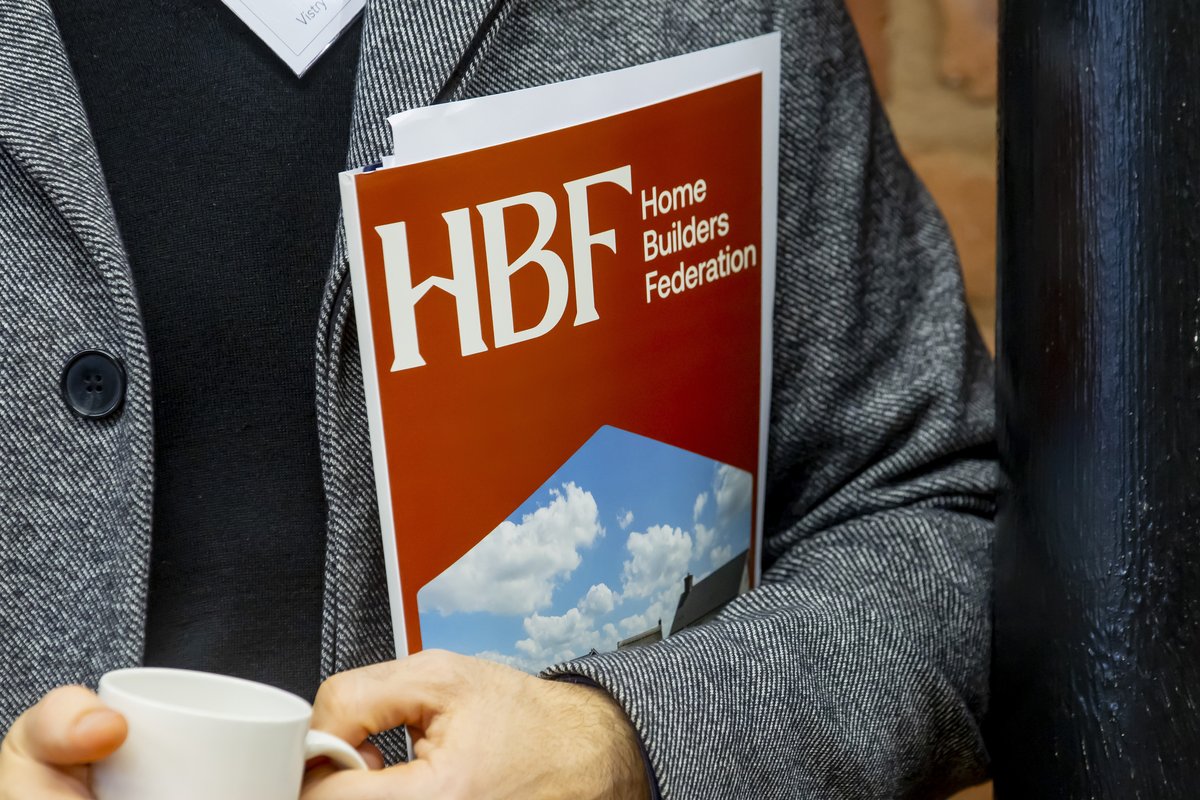
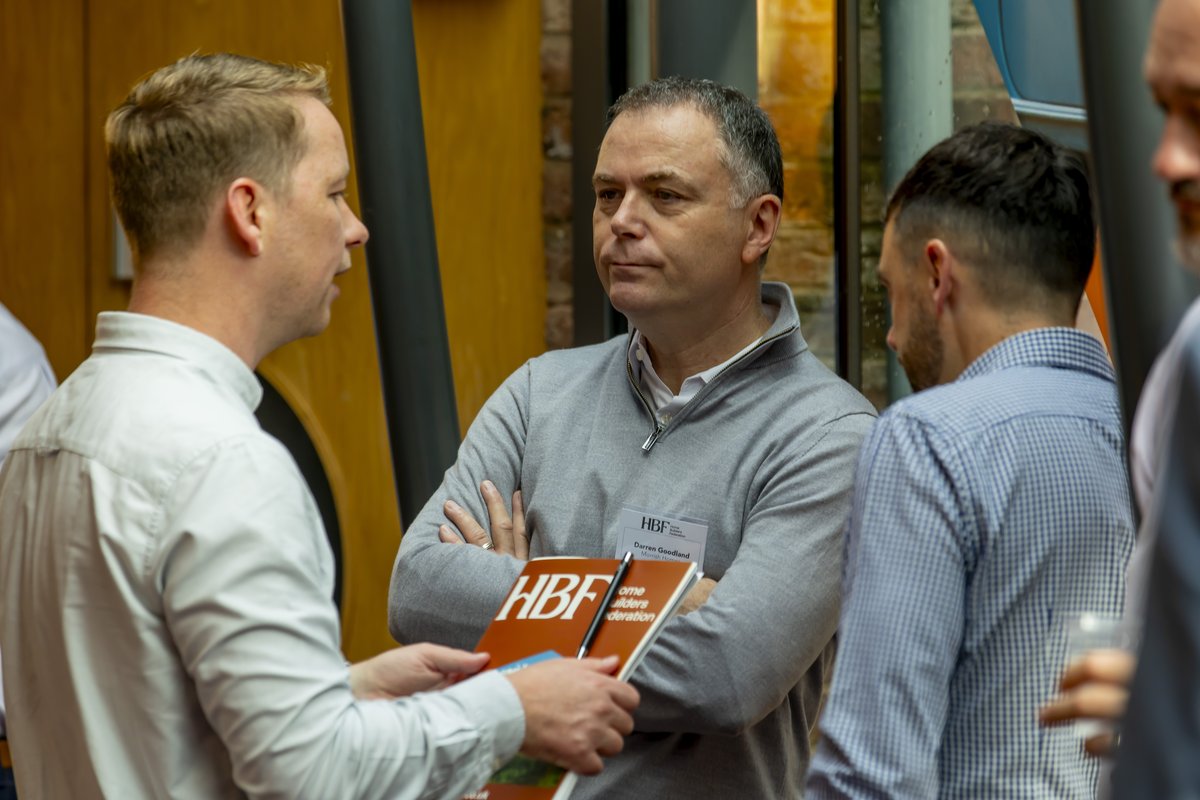

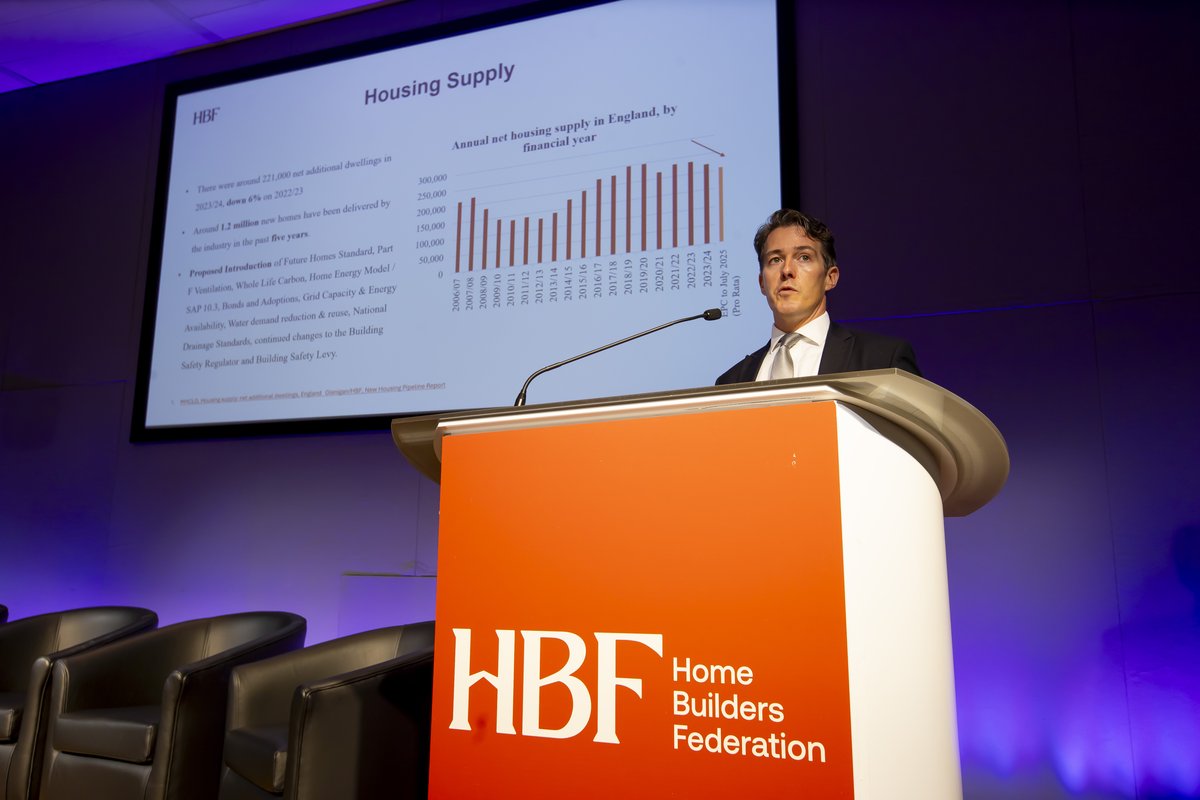




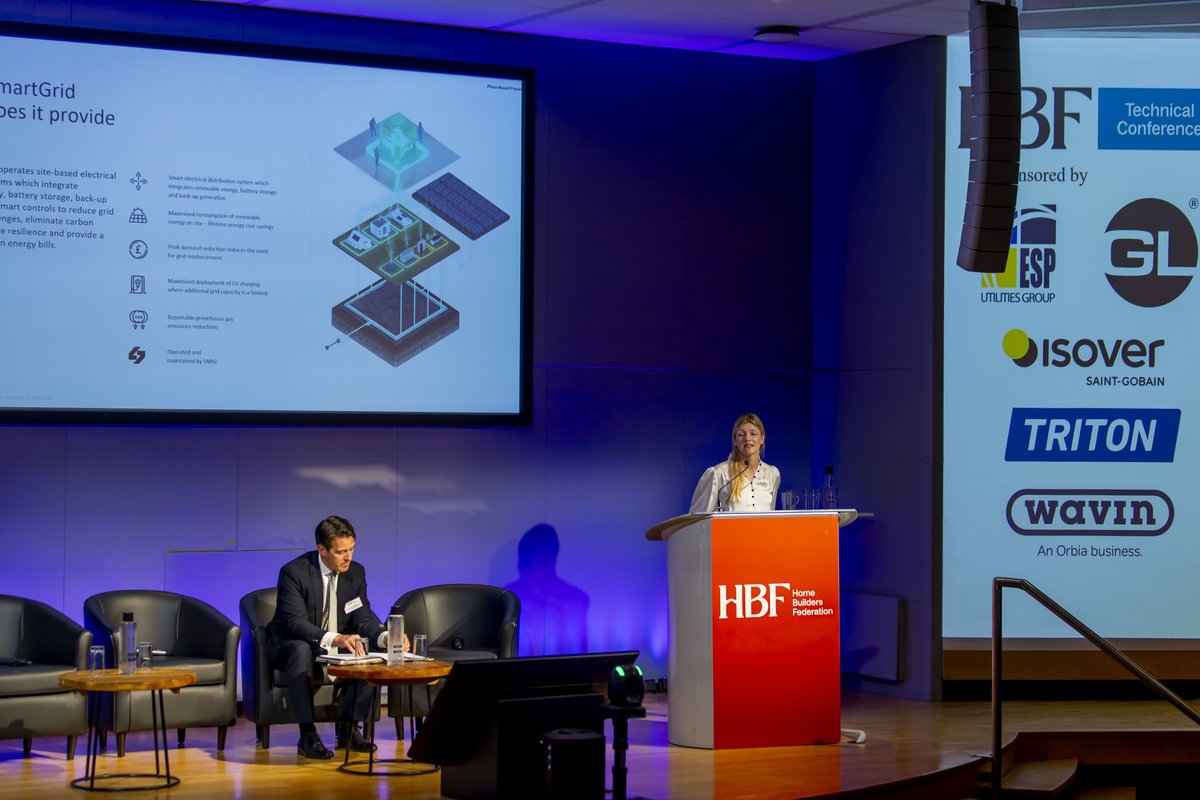






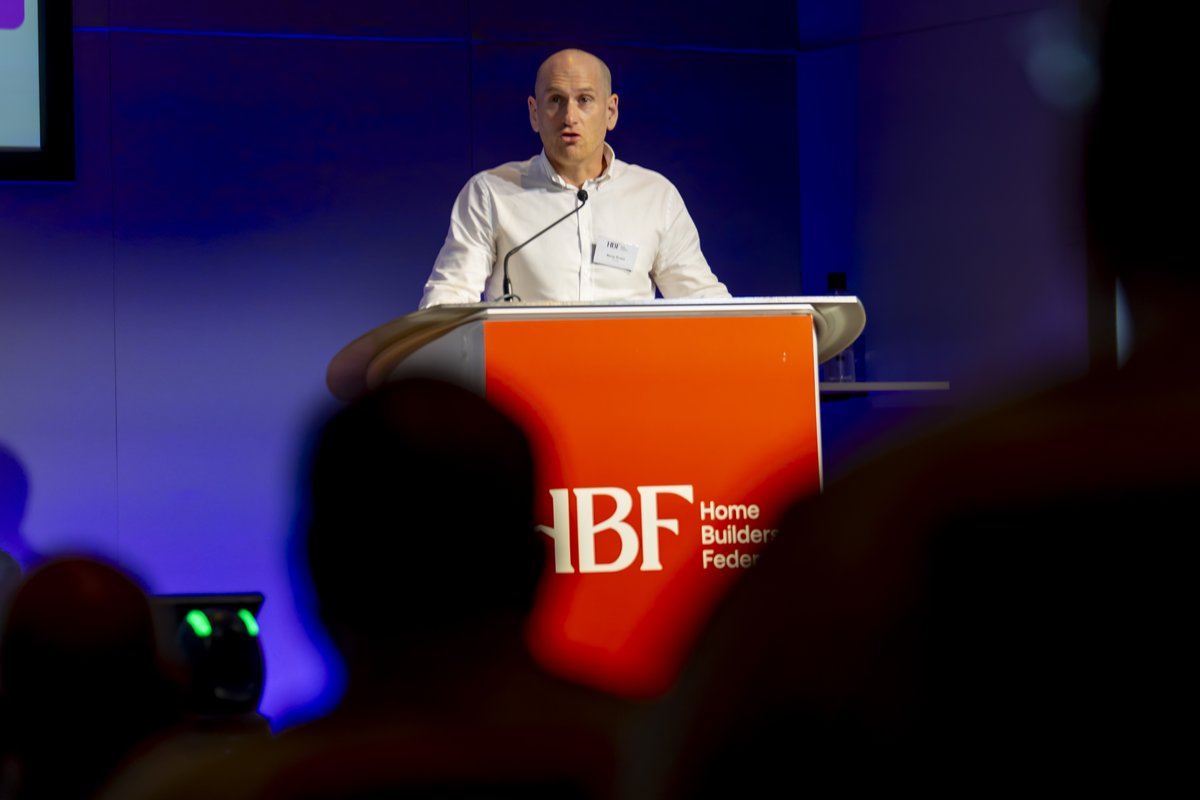



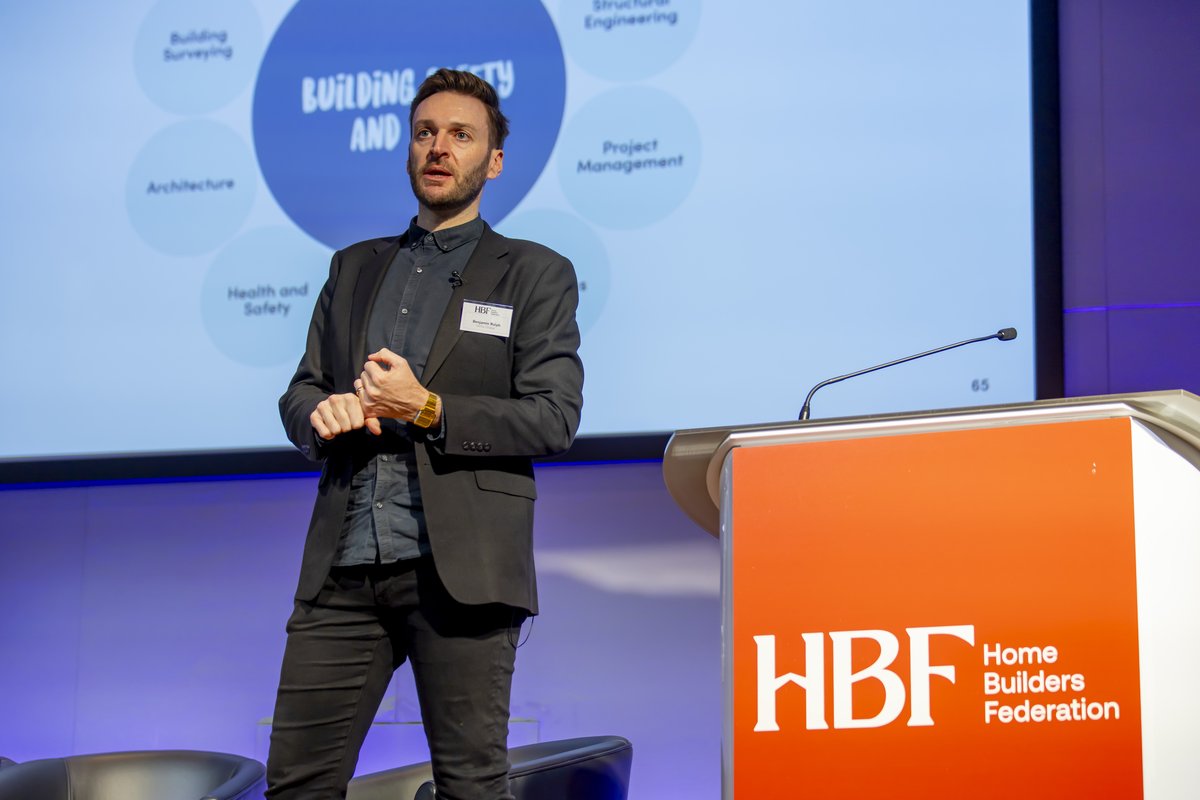






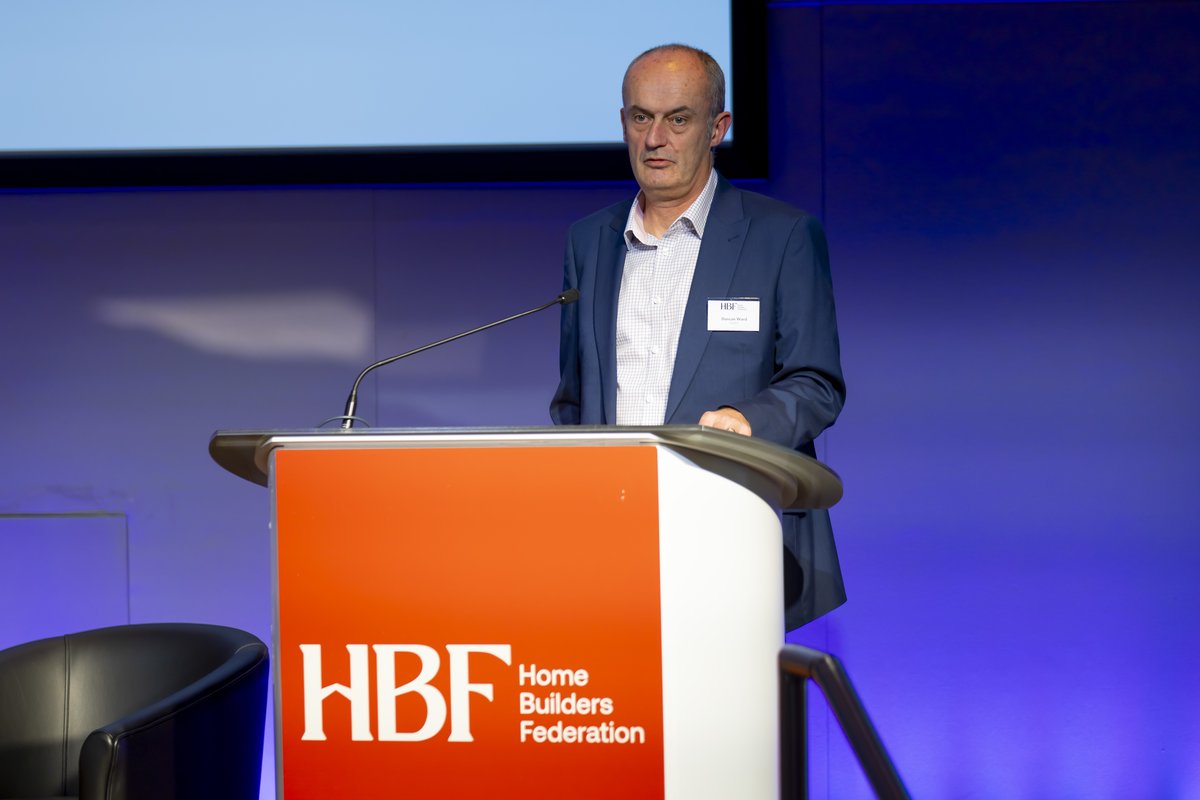


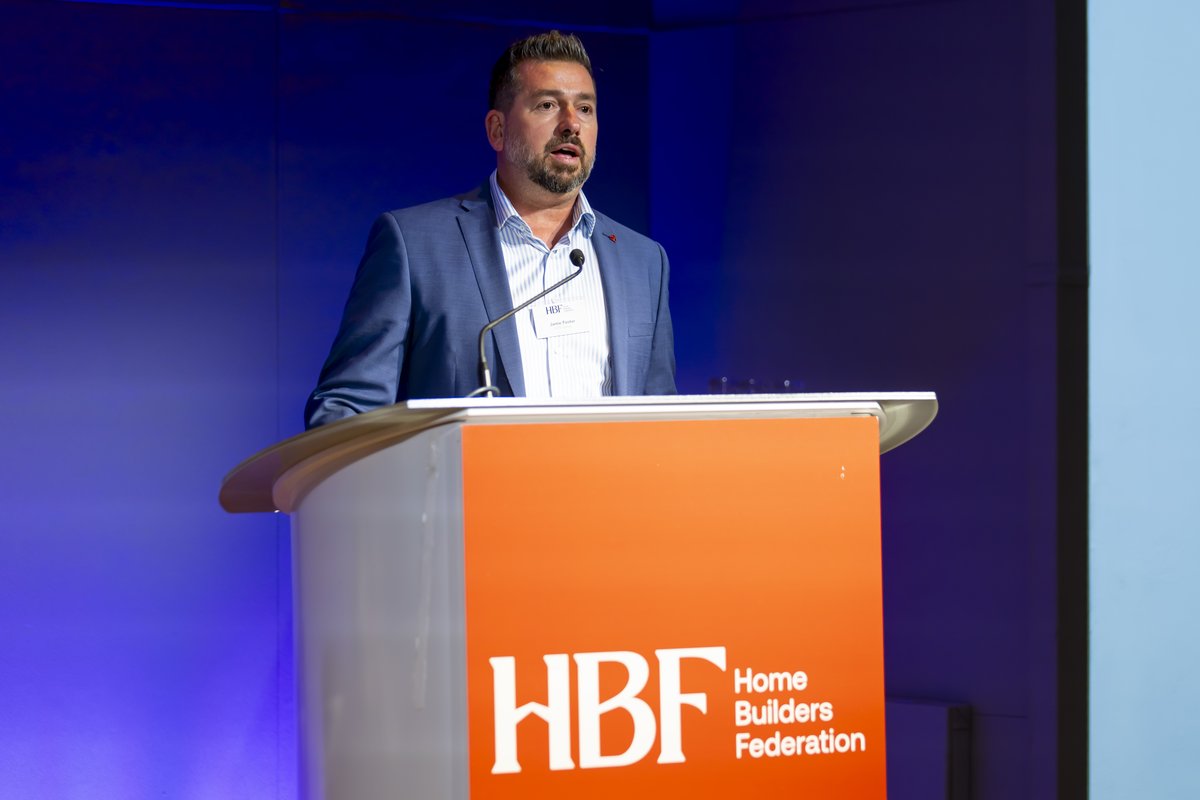










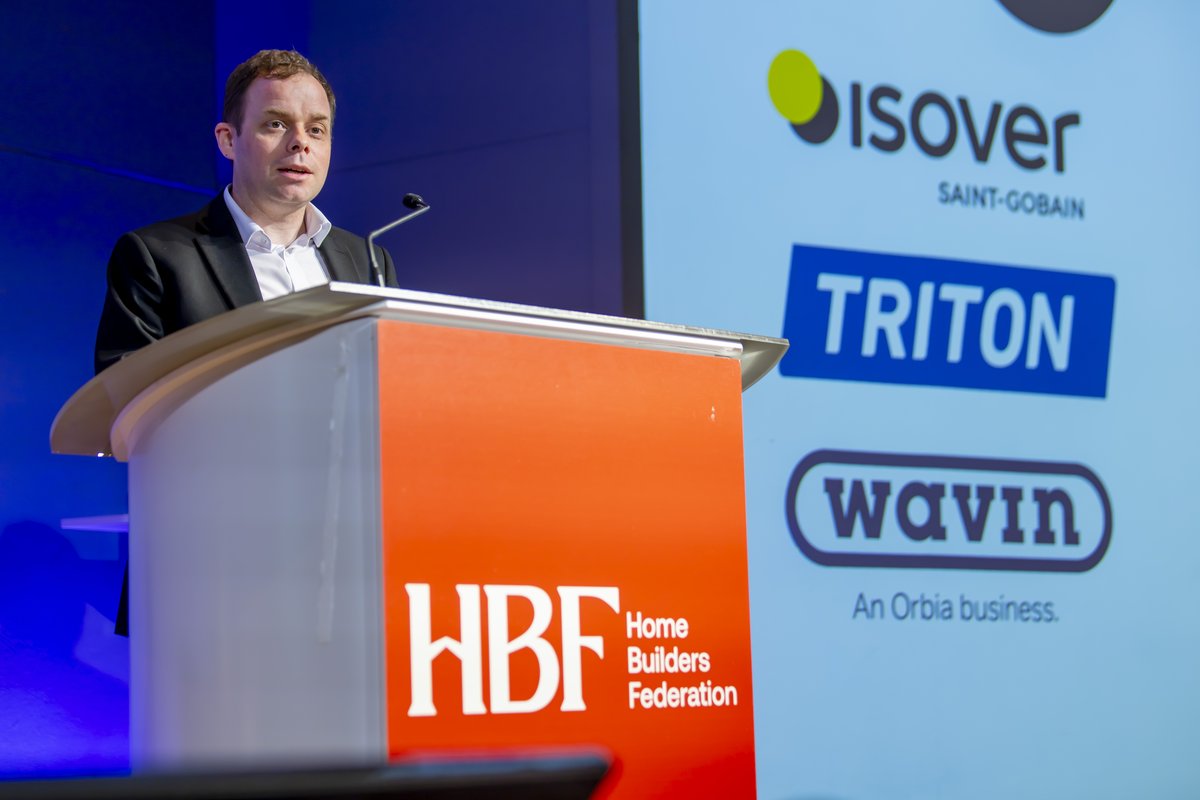

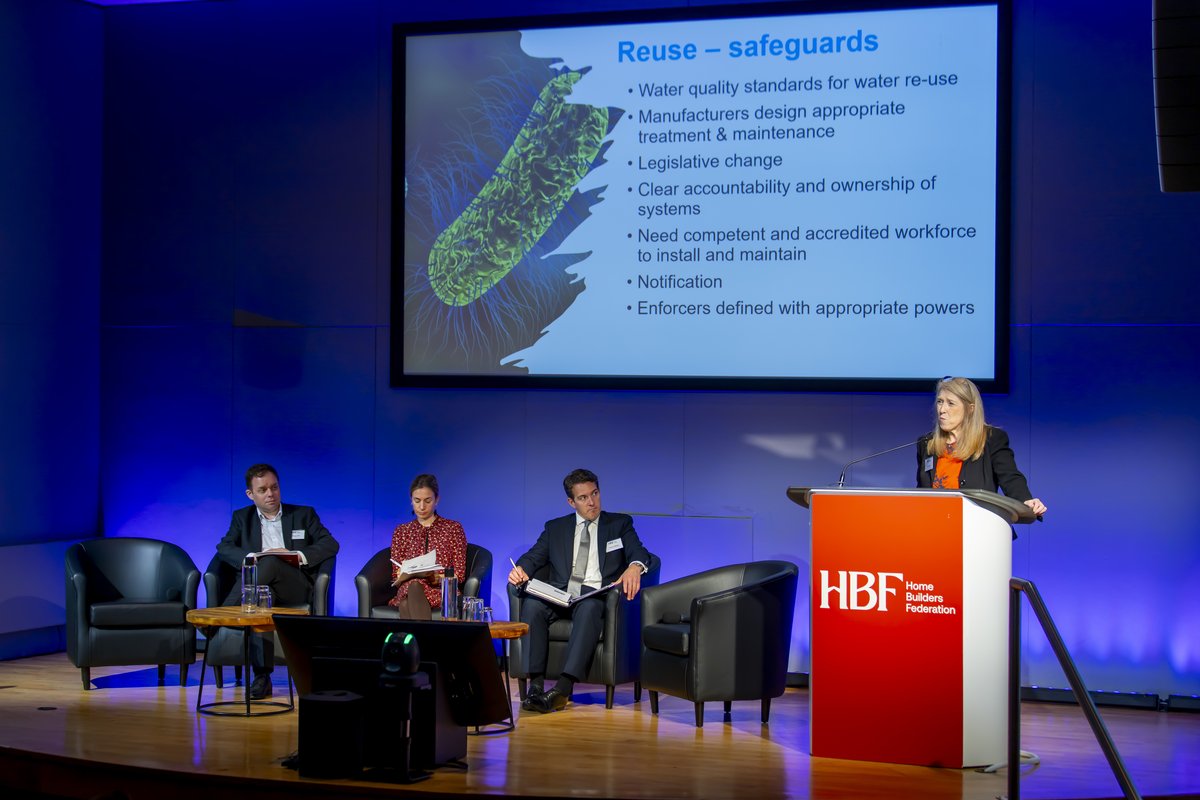
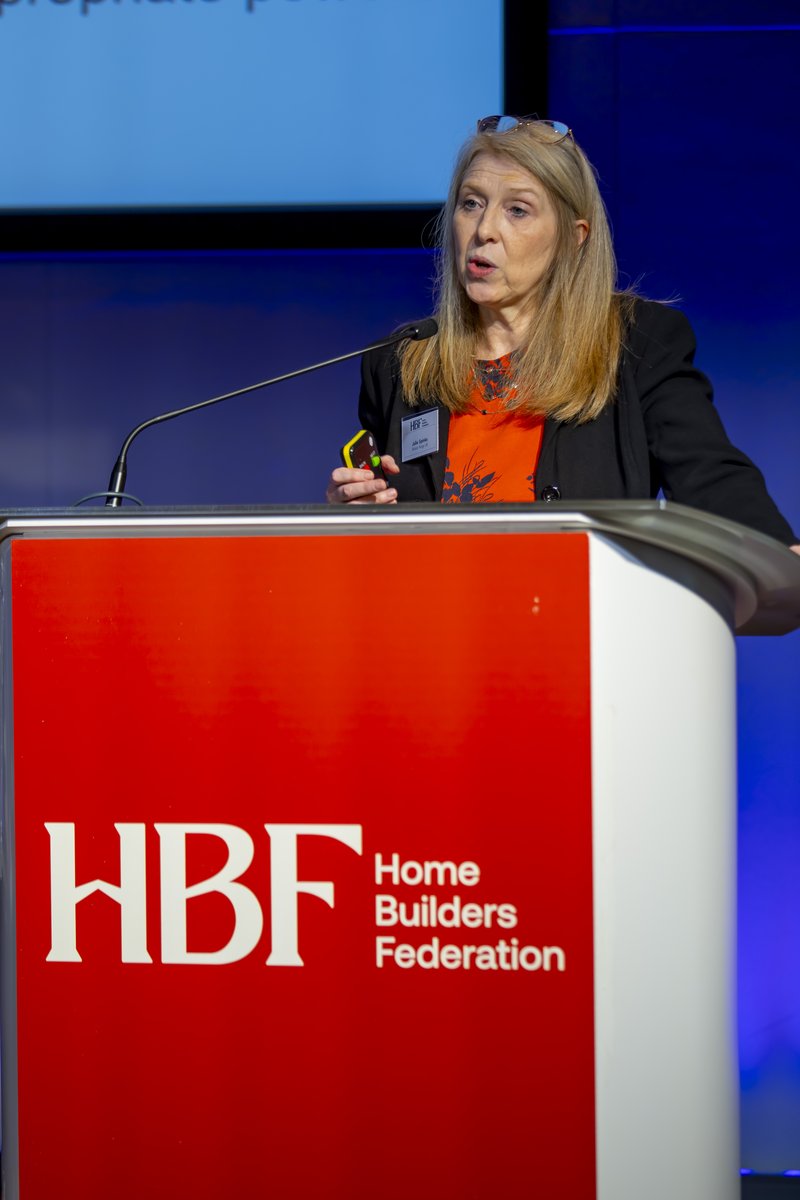




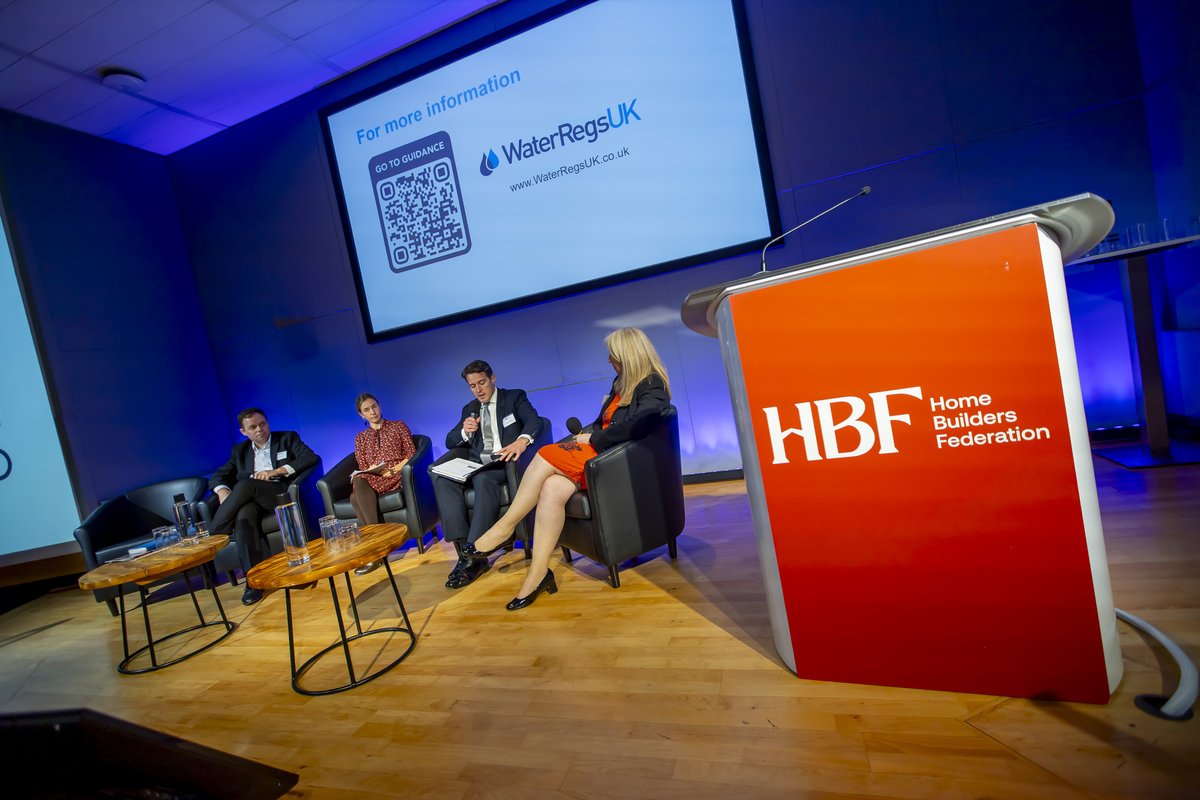


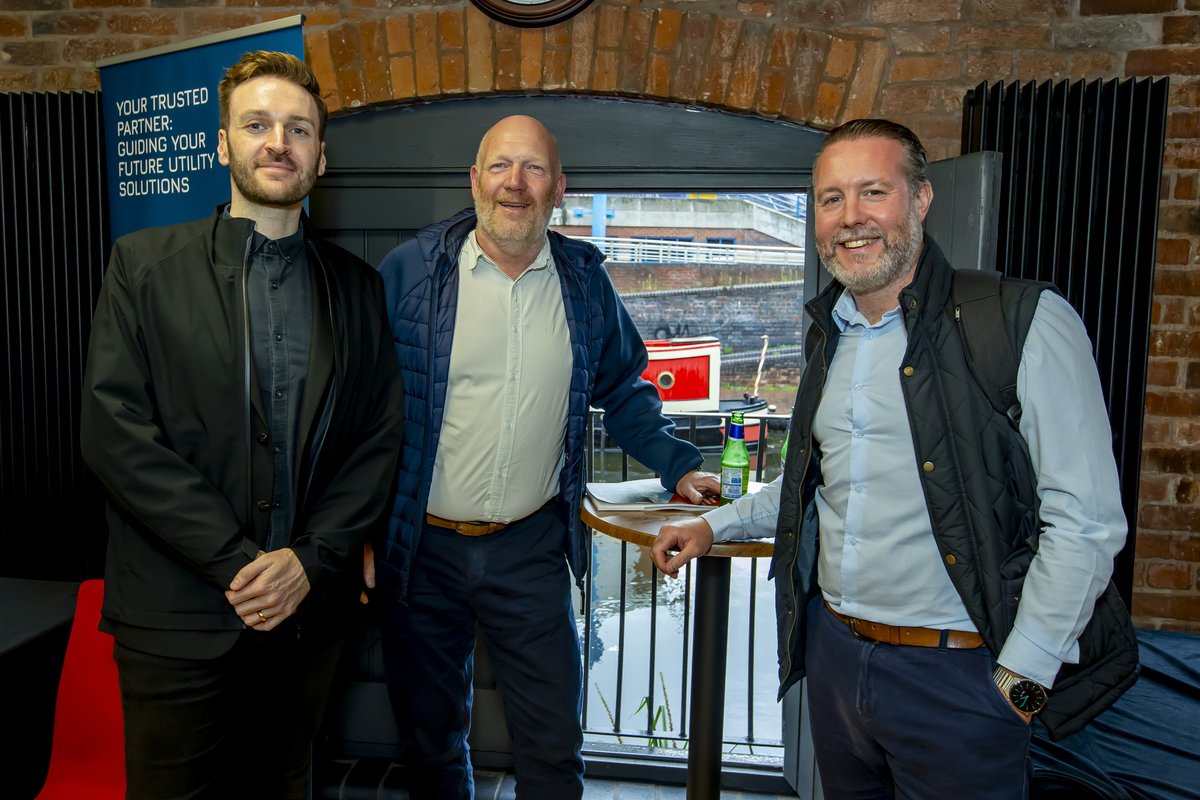
Speaker Presentations
| Claire Reid - SNRG | Download Presentation |
| Jack Brayshaw - Vistry | Download Presentation |
| Barny Evans - Turley | Download Presentation |
| Benjamin Ralph & Nathan Hooper - Hollis | Download Presentation |
| Maria Hudson - Zutec | Download Presentation |
| Veronica Fiore - Hunters | Download Presentation |
| Duncan Ward - NHBC | Download Presentation |
| Jamie Foster - JLES Group | Download Presentation |
| Richard Smith - NHBC | Download Presentation |
| Catherine Moncrieff - CIWEM | Download Presentation |
| Martyn Neil - Wavin | Download Presentation |
| Julie Spinks - Water Regs UK | Download Presentation |
The 2025 HBF Technical Conference took place on 18 September at Austin Court, Birmingham, and was well attended.
More than 60,000 homes in the south east of the country are set to be delayed due to water scarcity, 49,000 of which could be built if they used 30% less water than stated requirements, according to Catherine Moncrieff, head of policy and engagement at the Chartered Institution of Water and Environmental Management.
Speaking at HBF’s Technical Conference in Birmingham, Moncrieff cited the figures in relation to the government’s 1.5 million new homes target. The homes stuck due to a lack of water in the region would need to have a low water allowance of 80 litres per per person per day to alleviate shortages, Moncrieff said.
Moncrieff spoke as part of a water matters panel, exploring the various aspects of the water challenge – an emerging subject of concern - including water scarcity, flooding and water pollution.
She gave an overview of the Enabling Water Smart Communities (EWSC) project, which looks at how to integrate water solutions into the design stage of new homes, building them into the fabric.
Reaching the 80 litre mark in new households would mean “more than just water efficient taps and toilets”, Moncrieff said. The industry would need to move into the currently “niche” arena of water reusage, which, according to EWSC’s research, customers would support, but only with “trust in the new system and trust in the organisation that's going to manage it”.
Customers were largely unaware of the country’s growing water shortage, said Julie Spinks, managing director of Water Regs UK, also speaking as part of the panel. She pointed to England's water shortfall of 5 billion litres per day, set to be reached by 2055 if nothing was done.
“This is the equivalent of serving 8 million people. [The shortfall] could fill up Wembley stadium 45 times,” she said.
Also speaking at the conference as part of a building safety panel, Veronica Fiore, associate director of architectural and building consultancy practice Hunters, said she had "seen improvement” in recent weeks in the Building Safety Regulator’s “communication, collaboration and transparency”.
This follows changes made to the BSR’s management as announced in June, with the regulator moved to the Ministry of Housing, Communities and Local Government (MHCLG).“Let’s be positive,” Fiore said of the shift.
The Building Safety Act was now “good practice made law”, commented Dr Benjamin Ralph, also part of the building safety panel and director of real estate consultancy Hollis.
Jack Brayshaw, Vistry Group's director of innovation and research, detailed the systems the housebuilder was currently trialling to combat the supply and skill issues of traditional building.
“Since 2021, we’ve [the industry] lost a billion bricks,” he said. “We’re looking at over 1 billion bricks [to reach] the government’s 1.5 million homes target.”
Barny Evans, Turley’s director, sustainability and ESG, addressed the future of energy in homes, stating that with energy use, “it’s not what you do but when you do it” in terms of running costs.
He also said the industry should “shout about” the Future Homes Standard – now expected before the end of the year- as it “ends fuel poverty”.
Duncan Ward, NHBC’s road and sewer bond manager and Jamie Foster, md of JLES Group, presented on the bonds market. HBF highlighted this as an issue in a report released in February, revealing difficulties to getting roads adopted., with costs and timescales escalating.
Ward noted the variations in what is accepted across different authorities and the lack of standard wording for bonds.
Claire Reid, director, residential of infrastructure company SNRG, covered the industry’s electrical capacity crisis as it moves away from gas-based homes.
She said: “Steve Reed [the new housing secretary] has said he wants to ‘build, baby build’. He’s vowed we’ll still build 1.5 million homes but he hasn’t mentioned the electrical grid.”
Richard Smith, NHBC’s head of standards, innovation and research, gave an overview of the NHBC Foundation’s research publications, including those on the Future Homes Standard, ensuring quality while delivering more homes, hazardous ground gas and future proofing against climate change. He explained the process to compiling the reports.
Martyn Neil, Wavin’s business development director and part of the water matters panel, presented solutions to capturing, storing and reusing water.
And Nathan Hooper, director of Hollis, and Maria Hudson, Zutec’s group chief marketing officer, were the other members of the building safety panel. Hooper reminded the industry of the reasons for the Building Safety Act. Hudson made the case for digitisation of data, driven by the new building safety regime.
Speakers
Where
Austin Court, 80 Cambridge Street, Birmingham B1 2NP






















